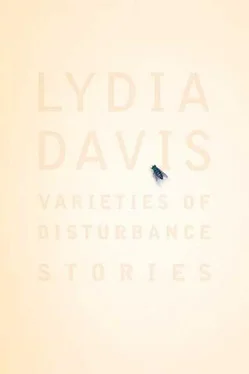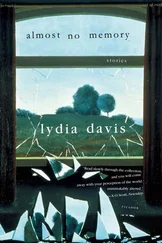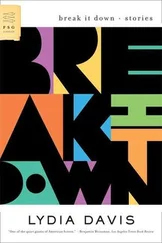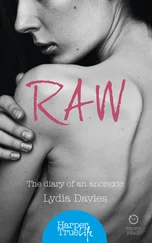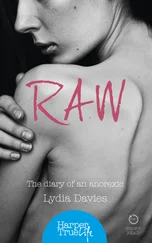Lois’s reference to the snow is general, and therefore less interesting, but she is the only one, kindly, to include mention of Stephen in the activity: “Sorry you can’t be with us in the snow.”
Movies
Stephen is also included in Theodore’s report of going to the movies: “A few days ago I went to see Marine Raiders and Stagecoach Kid. I wish you saw it.”
John C. also writes about going to the movies and names not only the movies but the town, though his use of And is unclear: “I went to P. [a nearby town]. And I went to the movies once in P. I saw Branded.” His script is gracefully formed but unusually consistent in sinking down slightly below the line. This may indicate a desire for more stability on his part, a fear of imagination, or, on the contrary, an unusually firmly grounded personality. His mention of the movie, however, may allow us to posit that he is attracted to works of the imagination, but at the same time reacts against their inherently unsettling presentation of an alternate reality by attempting to ground himself more firmly in his own reality.
It is notable that whereas the children are not always specific about other subjects in their letters, they take pains to supply the titles of the movies they have seen.
Christmas/Christmas Presents
Some of the children list their Christmas presents without comment. Others offer a general comment without specifying what they received.
Diane includes her siblings’ presents, too: “I got a victrola for Christmas. My sister got a doll carriage. My brother got a football.” It is unclear whether these were their only presents, or merely the most noteworthy.
John C., on the other hand, appears to be giving a complete list, and displays a nice sense of order in progressing from the greatest to the smallest number in his enumeration: “I got three cowboy books, two games, and a flashlight for Christmas.”
Joan is not specific, but she mentions a sibling and introduces her sentence about Christmas presents with a general statement: “I had a nice Christmas. My brother and I have very nice Christmas presents.”
Jonathan is one of three who ask about Stephen’s presents: “Did you get alot of toys for Christmas?”
Janet is less interested in quantity and wants specifics: “What did you get for Christmas?” She follows up with a second question that could refer to both quality and quantity: “Was Santa good to you?”
Kingsley is the only one to assume, rightly or wrongly, that because Stephen is in the hospital, he has not yet celebrated Christmas: “What do you think you are going to get for Christmas?” In keeping, perhaps, with the tentative nature of his question, the word think rises off the line and then returns to it. He follows this question with a general statement of satisfaction: “I got every thing I wanted to get.” Some of his letters are much larger than others, e.g., the b in better and the C in Christmas —both of which may have been especially significant words for this boy.
Conclusion: The Daily Lives of the Children, Their Awareness of Space and Time, and Their Characters and States of Mind
We may confidently form some idea of the children’s daily lives, characters, and moods from these letters, as well as their perceptions of space and time, even though the letters may to some extent misrepresent the truth because of the circumstances under which they were written: the teacher may have limited their choices as to appropriate subjects, and was surely present at the front of the room overseeing the exercise; the children did not choose to write the letters, but were compelled to write them; they were also aware that they had only a limited amount of time in which to write them and that the next subject loomed (“Well we are starting reading now”).
Daily Lives
If we are to believe most of the information contained in the letters, we may ascertain at least the following about the children: Their possessions are relatively few — in any case, they are satisfied with as few as five fairly modest Christmas presents (see John C.), although quantity is clearly of interest to them (see Jonathan). They spend time with family members and classmates. Their activities include playing in the snow (both sledding and skiing), going to the movies, shopping downtown, and occasionally traveling out of town. Some have pets and strong friendships, and some have an interest in schoolwork. Some of the boys are interested in cowboys, reading, football, and the movies; some of the girls in music, dolls, and nursing. Both boys and girls like to play outdoors.
Time
In general, the children’s sense of time and place is well developed. The letters overall contain a clear sense of the past (e.g., what they got for Christmas), the present (“Your seat is empty”), and the future (“My Sister is going to get a new skisuit”). Some of the children anticipate Stephen’s return in the future. Only Jonathan promises further communication: “I will send you more letters soon.”
The immediate future at the time of the writing is evoked, exceptionally, by Mary K. (“Well we are starting reading now”).
Place
The letters also show that the children have a clear and accurate sense of where they are in space. As they sit in their schoolroom writing, they are in fact on a higher elevation than the center of town, which they not only colloquially but also correctly refer to as “down town.” They are closer to the center of town, however, than is the hospital, which they locate “over there.” Their plateau is also lower than the elevation on which the hospital sits, which they refer to as “up there.” “Up there” may also indicate their awareness of the fact that the hospital lies slightly to the north of the town.
It may also be pertinent to suggest that in the phrase “over there” we see a rare coincidence of actual and psychological space, in that their use of the phrase quite possibly signals an attempt on their part to distance themselves firmly from the hospital and its implied threat of death and disease.
The immediate space of the classroom is evoked by Joan and by Susan B. with their respective references to “in our row” and “Your seat is empty.”
It should be noted, in addition, that some children are more preoccupied generally by the outdoors (“we went skiing”) while some are more concerned with interior spaces (the classroom, row or seat; the hospital). There is also, besides the distancing “over there,” a general, perhaps anxious, identification of the hospital with the direction “out” (Billy T.’s “When will you be out?”) in contrast to the reassuring identification of the school with “in” and “back in” (Mary K.).
Characters and States of Mind
The teacher, though carefully controlling the form and general content of the letters, seems to have allowed the students to follow their own desires as to specific content and style, perhaps within certain limits. This being the case, the children’s choices of subject matter, along with their treatment of it, may give us clues as to their different characters and temperaments.
Some children indicate a high degree of self-sufficiency, entertaining themselves (outdoor play), while others reveal some dependence on “packaged” or “ready-made” entertainment (two instances of trips to the movies). Some reveal more inclination toward activity in general, whether physical or cultural (outdoor play, movies), while others are more concerned with material acquisition (Christmas presents, shopping trips); and finally, a majority of the children focus on outer-directed or interactive activities of one kind or another (play, shopping), while a small percentage seem preoccupied by certain ideas or mental states (you are gone, your seat is empty, “I just can’t think”).
Читать дальше
